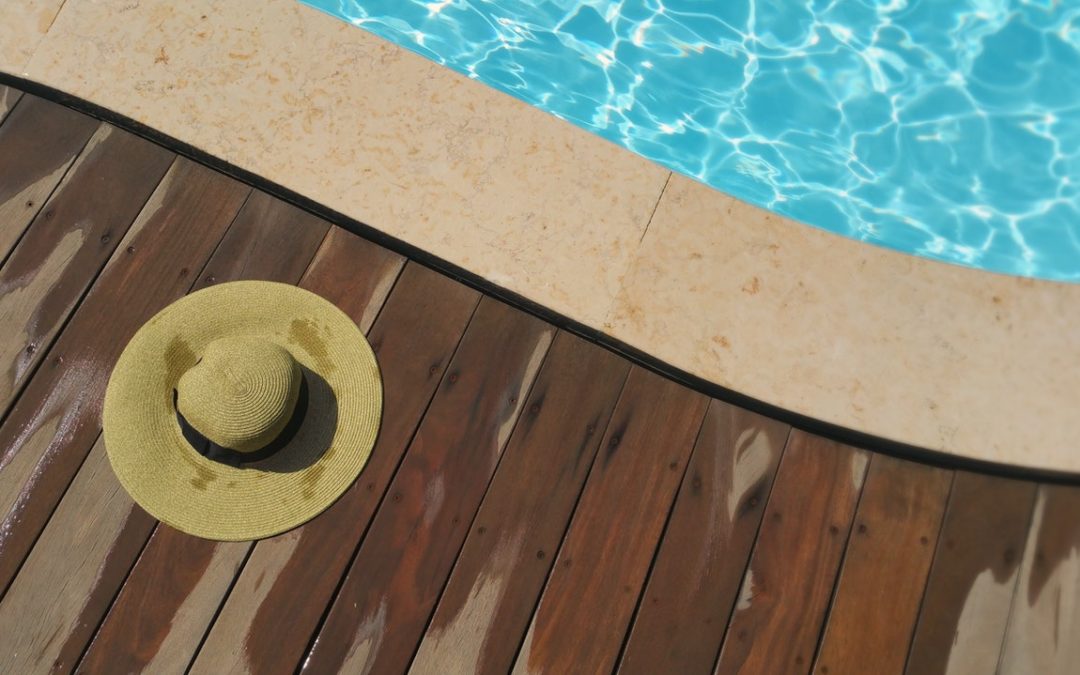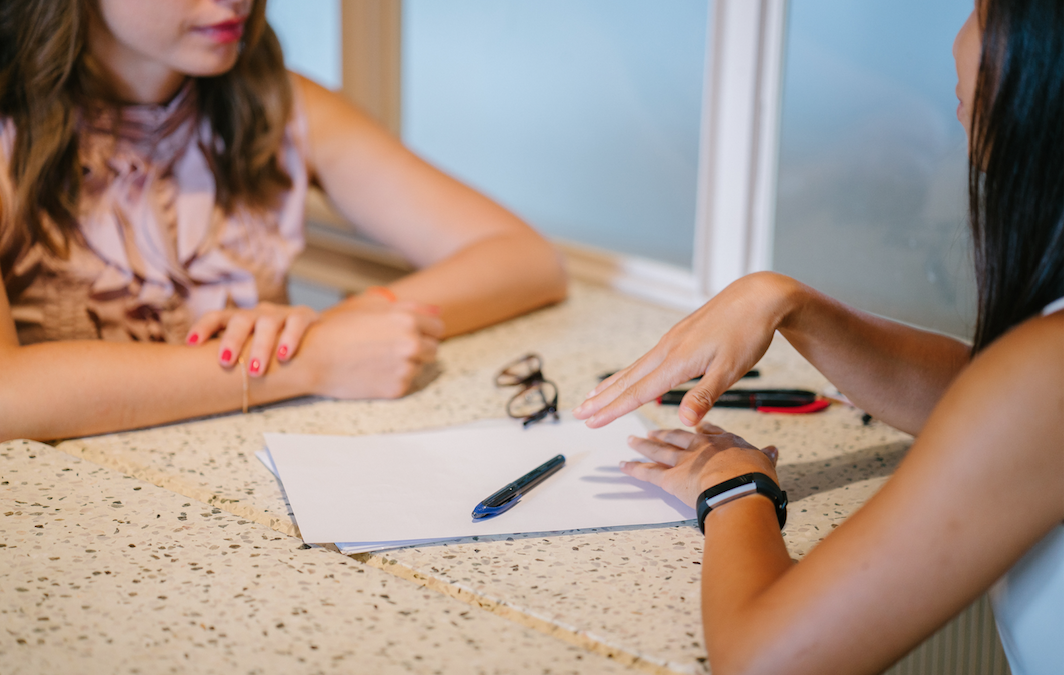
by Nicole | Jun 5, 2018 | Featured, Journals, Life, Published, Reflections, VINAZine, Writing
Keeping a journal has been an essential piece of my writing process, since the moment I became a writer all those years ago. Putting the pen on the page and letting my thoughts spill out before me is not just comforting, but helpful – even if I am just doodling or writing about how much I dig the pen I’m using.
Journaling been so many things to me, but the three things below are what I find most important about my journaling journey.
BRAINSTORMING
When I am working on a project (personally or professionally), I often start with brainstorming. I will literally just start writing down topics, key words, random thoughts, or any tangent of an idea that I’m having at that moment that is connected with the task at hand. When I take to my journal to hash out potential ideas for a blog, poem, or for a process at work, I let my pen narrate my thoughts. It helps me to visual the ideas I have, either in front of me on the page or displayed on a white board. And because I love lists, it helps me organize my thoughts and formulate a plan to move forward.
LOGGING LIFE, EXPERIENCES, AND PROJECT PROGRESS
I have more notebooks than I need, so I usually use them for separate things. I have a journal for personal thoughts, a small journal I keep in my purse for musings on the fly, legal pads for outlining, etc. I also write down big things that happen during every day life, so I can look back and see how I changed, for better or worse. When I got married this past spring, I recorded our weekend and the epic road trip that followed, so my husband and I could read it later and remember exactly how our marriage began.
A few years ago, I decided to dive head-first into fiction and began writing a novel (and I won’t lie, it’s taking forever because, you know, life). I started a journal for that project mainly to chronicle my thoughts, shortcomings, and victories while working on the piece. How wonderful it will be to look back on that journal when I finally finish the book, to see how I grew as a writer. And who knows, maybe I’ll find gems years later that prompt the next endeavor!
THERAPY
Ah. Therapy! Perhaps the most important reason why I keep a journal. Since I was a pre-teen, I have written down my thoughts to sort through them. Those angsty teen (and let’s face it, early twenty-something) feelings I had were always worked out between the pages of my private journal. The things I went through as a kid, teenager, and young adult – I was able to sort through the weird thoughts and feelings by writing down how I felt in the moment. I don’t know where I would be, emotionally and mentally, if it weren’t for my journals.
One of the most therapeutic exercises I’ve done is not even keeping some of those pages inside the journal. To work through the tough stuff I write down exactly how I’m feeling. Maybe it’s directed at a person, or just how I’m feeling in general. When I’m finished, I make a deal with myself: once I destroy this paper, I will let it all go. That’s when I rip it to shreds. I flush it down the toilet or I burn it. It’s a strange relief, I must say. It honestly helps me move forward.
What are your reasons and how does journaling help you? Even if you aren’t a writer, give it a shot. You might be surprised with where journaling will take you!
This post was originally published on the VINAzine <3

by Nicole | May 25, 2018 | Published, VINAZine
I’ve had what feels like a million great summers over the course of my life. But twist my arm to pick just one and I will always land on the summer of 2006 …
I’ve had what feels like a million great summers over the course of my life. But twist my arm to pick just one and I will always land on the summer of 2006 — even though it seems like a lifetime ago. Especially when I consider friendship and how it helped me forge the path to where I am in life today.
I was fresh-faced at 22 and the world was my oyster. Well, the Midwest was, anyway. It was the summer I decided to go back to college, the summer I spent day after day with my vinas at the pool, the summer I worked my ass off for a job I loved. I even fell back in love with writing that summer.
My core friend group consisted of people I worked with at a restaurant. Night after night, we would sling steaks and clean up copious amounts of peanut shells, followed by cocktails into the wee hours of the morning. We’d wake up around 10, go to the pool for the day, shower (or not), and do it all over again. We worked hard, played harder and it was FUN. I wrote about the moments using prose and poetry in journals that are now sitting at the bottom of a box in storage.
Not only did we create memories that will forever be frozen in time, we forged bonds that will never be broken. We loved each other, some in more ways than one. Anyone who has worked in a restaurant understands the close-knit nature of the staff — we date each other, break each other’s hearts, or maybe we found our soulmate (romantic or not).
In fact, that summer taught me what I deserved when it came to love and friendship after I fell for my closest guy bud. Needless to say, it didn’t work out, but we were able to maintain a friendship. I became a stronger woman because of it and knew I couldn’t settle for less when that chapter closed.
That summer also helped me realize I wanted more for my life. My friends pushed me to write more, and when I decided to go back to school, they supported me. The ones I worked with covered my shifts when I needed to finish a paper. The ones I knew from school would study with me. My best friend and I would study for hours together with Law & Order SVU playing in the background. We’d help each other prep for tests and stay focused, even if we were ready to give up. My first semester back would not have been a success without their help.
That summer, I took my Dave Matthews Band obsession to the next level. I saw my first show in Cleveland with another bestie of mine and we spent the eleven years following them from city to city around the Midwest, meeting up with friends we made through Twitter. You might remember me mentioning it in my article about how it’s totally normal to make friends online nowadays. If it wasn’t for the summer of 2006 (or the creation of Twitter, let’s give credit where it’s due), I would have never met some of the ladies who have become some of my closest friends today.
The summer of 2006 taught me so much about life, love, and friendship and for that I will be forever grateful. Each year, when Memorial Day rolls around, I often I wish I could go back in time and spend my days lazy by the pool, laughing about what so-and-so did the night before. Or how I could just take off on a random Wednesday and drive six hours away to see DMB play without planning ahead. I wouldn’t trade what I have now though, but it’s nice to reminisce on what I consider to be one of the most important summers of my adult life.

by Nicole | May 23, 2018 | Life, Professional, Published, VINAZine
Interviewing is no walk in the park for most of us. Between the nerves and the need to impress the person on the other side of the table (or on the other end of the phone), it can be hard to stay in control of the situation — but it’s important that you do!
You have to remember you are interviewing the person and company just as much as they are interviewing you. By doing your homework ahead of time, you’ll be able to start off with the upper hand. Some things you can do ahead of time:
- Look into the company culture and check out reviews on Glassdoor (a fantastic resource that not only gives you salary and job information, but reviews from employees and how the interview process went for candidates who applied previously).
- Have a number in mind when it comes to salary. Know your worth, vina!
- Be ready to ask them questions about their culture and future as a company, and how they see you fitting into the mix.
So, now you’ve done your homework and it’s time for the phone or in-person interview. How do you stay in control?
For starters, don’t be afraid to ask the interviewer why they were interested in speaking with you about the position. Say something like, “What about my resume interested you?” or “What about my background caught your eye?” This will help set you up as a power player for the interview.
It will also prompt the interviewer to answer with specific skills that are likely needed, which in turn prompts you to respond with a confirmation statement, acknowledging they have a solid understanding of your background/skills.
Asking those questions in the beginning leads straight into the thing no one wants to talk about, but it’s important to discuss immediately: salary. I’m going to be frank — it’s important to get this out of the way as quickly as possible because no one wants their time wasted — not you, and most certainly not your interviewer. It’s not a fun dance, but a necessary one. You can start by saying simply, “What salary do you have budgeted for this role? I’d like to make sure we’re on the same page.”
If they come back with a range, awesome. If it’s in your desired range, that’s even better! But don’t be surprised if they try to dodge the question or tell you they cannot disclose that information yet. If they turn it back around on you by asking you what you currently make, you don’t have to tell them (in fact, it’s a law in several states that employers can’t ask prospective employees their current salary). Be polite and firm. You can say “my previous employers have always considered that to be confidential information…” and add one of the following to the end of that statement:
- “…but I’m open to your thoughts on this because I believe you will be consistent with the current market.”
- “…but I’m open and somewhat flexible as I appreciate the opportunity to add value. Can you share how you value this position and what the budget is for the role?”
The idea here is to be polite, firm, and show your genuine interest in the opportunity. After all, you’re interviewing each other for a reason!
Another way to stay in control is to remind them that they called you. Ask them questions that reflect on your skills. “Can you tell me what a typical week looks like in this position?” or “what kind of projects will I be working on for your company?”
Last but certainly not least, be transparent about the fact you’re interviewing with other companies. It’s not something that should hinder your chances for landing the job, but rather help give you an advantage. You can simply tell the interviewer that you are speaking with other companies and you’d love to continue the conversation, but make sure you ask when you’ll hear back from them. If they don’t give you a definite time frame, don’t be afraid to request one. You don’t want to hang out forever waiting to hear back, especially if other opportunities arise in the meantime.
This post was originally published on the VINAzine. <3

by Nicole | Feb 22, 2018 | Published, VINAZine
You and your cells need to have a chat…
You may have heard the term endometriosis before, but maybe you are unfamiliar with what it actually is or what it feels like. I recently read Lena Dunham’s account of having her uterus removed due to terrible pain from endometriosis, it was intense and scary, and now she has a limp! GAH.
Endometriosis is a disorder where the cells that normally line the interior of the uterus grow outside the uterus. Those cells then try to do their usual menstruation thing, and will then bleed and try to shed, but they’re not in the right place to do their thing. So, suddenly when it’s time for your period, your cells are trying to menstruate but they’re not in a uterus, maybe they’re on your skin, maybe they’re other places, so then it can form cysts, making your already painful periods much worse.
Sounds horrible, right? It is. And guess what? This disorder affects over 170 million women globally – some haven’t even been diagnosed or treated for it, either. Weirdly a lot of doctors write female pain off and it can be hard to get them to pay attention. Shocking, right?
Endometriosis fast facts:
- Most commonly involves the ovaries, fallopian tubes, and pelvic tissue
- Can cause pain before/during/after menstruation
- Can cause fertility issues
What are the symptoms?
There are various symptoms that go along with endometriosis. The most common though, is pelvic pain. It’s usually around the time of menstruation, but can occur at any time during the monthly cycle. For some women, it can completely wipe them out, prohibiting from taking on daily activities as normal. If you have pain during the following, you may want to start the conversation with your doctor sooner than later:
- Pain before, during, or after your period
- During sexual intercourse, ovulation, or when urinating
- Lower back pain
Another big symptom: infertility. As many as 30-40% of women with endometriosis can have issues with fertility.
Other symptoms that come along with endometriosis are a little more common, like bloating, constipation, and fatigue. You know your cycle best – if something feels off, get an appointment with your doctor right away!
How do you treat it?
Treatment for endometriosis can vary, but is most commonly done by either pain medication, hormonal treatment, or surgical methods. Birth controls such as pills, patches, and rings can help control the tissue buildup by giving you lighter and shorter periods each month. Surgery to remove the tissue may also help, but that doesn’t prevent it from returning. Having a total hysterectomy could also help (removing the entire uterus and cervix, and both of your ovaries), but is always considered a last resort (but viable) option.
Vina, know you aren’t alone.
In recent years, women have become more vocal about this disorder. In fact, you might recognize some of these names bringing attention to endometriosis:
Lena Dunham: “Endometriosis is not life-threatening… it doesn’t manifest externally very often; the symptoms just look like a pair of sweatpants and a Charlize Theron–in–Monster–level grimace. I know I’m lucky in the grand health scheme, but I also know that I am one of many women who grasp for a sense of consistent well-being, fight against the betrayals of their bodies, and who are often met with skepticism by doctors trained to view painful periods as the lot of women who should learn to grin and bear it.”
Padma Lakshmi: “I think, yes, endometriosis was definitely a major reason that my marriage failed. I don’t think either of us understood it at the time — for as smart and intelligent as [my ex husband] is. I think that’s also because I hid it to a certain degree. Not intentionally, but it’s weird to talk about your period all the time. It’s the least sexy thing in the world to do.”
Bethenny Frankel: “I suffer from endometriosis and had laparoscopic surgery in my early thirties to alleviate unbearable cramps and excessive bleeding…find a doctor you trust and don’t be afraid to ask questions.”
Halsey: “With doctors essentially telling me I was being a big baby about my period, or misdiagnosing PCOS, etc etc. Finding out that I have endo was the most bittersweet moment because it meant I wasn’t crazy! I wasn’t a ‘baby’! I had every right to be feeling like the world was caving in.”
Bottom line – stay ahead of the game when it comes to your health. You know the specifics of your cycle – talk to your physician immediately if you feel any abnormal pain. Don’t under report the pain you’re feeling and definitely don’t be afraid to ask for a referral to another doctor if you feel you aren’t being treated adequately.
Do you suffer from endometriosis, vina? If you’re comfortable sharing your experience with us, start a conversation in the comments so we can collectively become more informed on this disorder.

by Nicole | Oct 6, 2017 | Published, VINAZine
Run into someone you know you’ve met before on the street? A few tips on how to remember her name.
Ever meet someone at a party or work function, then run into them a few days later at your bodega or local grocery spot and completely space on their name? Then you do that awkward song and dance, doing everything you can to avoid having to admit you can’t remember their name? Hey babe, it’s cool. It happens to the best of us! There’s actually a scientific reason behind it. Simply put: your brain is wired to recognize a face, but names are another story.
There are evolutionary reasons – four, to be exact – as to why we’re wired to recall a face more easily than a name. Dr. David Ludden, Ph.D. (professor of psychology at Georgia Gwinnett College) shares in Psychology Today the reasons are arbitrary, they do not have synonyms, are low-frequency, and contain multiple words. It’s easier and faster for our brain to recognize something we see, versus remembering a word or series of words. “We even have dedicated machinery in the brain for processing facial features. This makes facial recognition quick and relatively accurate.”
Need more evidence? This video by ASAPScience gives a great overview of these reasons and even dives a little further into the reasons Dr. Ludden compiled, identifying this phenomenon as the “Baker Effect.” What exactly is the Baker Effect? Here’s a basic rundown: its namesake comes from the idea if you meet a baker named Baker, you’re more likely to remember her name is Baker. Makes sense, right?
Think about the times you may have tried to associate connections to physical objects and people just to try and remember their names. Sometimes using a rhyme is helpful. For example – Heather wore those gorgeous handmade featherearrings to the party on Saturday night. If you think of those feather earrings, you’re likely to picture Heather’s face, therefore making the connection between the object and her name. So next time you run into her, you’re more likely to recall her name.
If remembering people’s names is hard for you, don’t be too hard on yourself. Chalk it up to evolution! And remember, it’s not the end of the world if you have to ask someone what their name is again. When you ask, you can bring up this information and start a v cool, intellectual conversation with your new acquaintance. Then, you both can try to come up with some mnemonic devices to help you remember names in the future. That’s fun, right?
How do you remember names of people you’ve met once or twice? Share your tips and tricks below!

by Nicole | Jul 5, 2017 | Published, VINAZine
Hard work and technology pays off a long lasting friendship.
As we pass through major milestones, our lives change – it’s only natural that our friendships change over the course of time. The key to making friendships last? Hard work. You have to show up and make an effort. Technology (apps like Hey! Vina especially) makes it easier for us to create and strengthen our friendships, but it still takes effort to keep a friendship alive.
Let’s chat about the seven ages of friendship, as recently described by the Daily Mail and how we can continue making our friendships stronger, despite the curveballs life throws at us.
You begin making friends when you’re younger, of course, due to being in school or through playdates your parents set up for you. Those younger, formative years of friendship teach you early on how to be empathetic, compassionate, and accepting.
When you leave school and enter the workforce, you begin to make friends outside of your core age group. Lean on your existing friendships to create new ones and expand your circle by using technology to help you along. Facebook is a great way to extend your network, but be careful to not just be an online friend though. Author of Wired to Connect and psychiatrist Dr. Amy Banks recommends checking in with your new pals offline to cultivate those friendships. “If you neglect friendship at any stage in life, you will feel less competent when you meet new people,” she warns.
The next age of friendship involves coupling. You and your friends begin to pair off with their newfound loves and leave their single pals in the dust. It happens, but we can avoid neglecting our friendships during this period by being cognizant of our single friends’ feelings.
Our very own founder and CEO of Vina, Olivia Poole, told the Daily Mail “When I was single, I used to find that sometimes my friends wouldn’t invite me, perceiving the gathering as a ‘couple thing’ even though I wouldn’t have minded.” There you go – extend that invite anyway, babe! Another suggestion: use Hey! Vina and set up dates with new pals. Even if you’re in a committed relationship, it’s important to date your friends too!
Now come the babies (for some, anyway) and the balancing. When you’re in a friendship with someone who’s beginning their journey into parenthood, it can be hard to continue nurturing that relationship. I am one of the only gals out of my friends who doesn’t have children, but that doesn’t change how I feel about my friend. I’m understanding of their new busy life and I make sure to carve out time when their schedule allows. Of course, it’s helpful when they keep my schedule in mind, too, as work tends to be my baby. Set a quick coffee date that is kid-friendly or an evening out if your schedules allow. Just don’t lose touch – sometimes, that’s the thread that keeps your friendship strong if you can’t see each other all the time like you used to.
When the kids are grown and off to make their own way in the world, you may be with that empty nest feeling. You may have lost touch with old friends and are struggling to make new ones in your newfound free time. Irene Levine, a professor of psychology at New York University’s School of Medicine, shares in her experience: “The willingness to share confidences and form intimate friendships is more likely to be a matter of personality than age. Many women grow more confident with age and are open to new friendships.” Therefore, be open to meet new people that fill different needs and remember, it can take time to build up friendships with someone new – just like at any age, you have to take your time to get to know someone.
Finally, the age we’re all waiting for: retirement! You may have grandchildren by this time, or you may be traveling the world. Chances are you’ve moved to a new place in your life so your old friends may not be around and it’s harder than ever to keep in touch. The nice thing about this age is you have free time to spend doing things you love. Sign up to volunteer somewhere or take a class to learn something new. If you’re on a fixed budget, schedule coffee dates with friends, new and old, or take a walk in a park while you chat with each other about your lives.
(Featured Image via Payton Sartain)
Friendships, just like us, evolve over time. You have to put the work into keeping the bond strong. What stage are you in?
Page 2 of 4«123...»Last »






